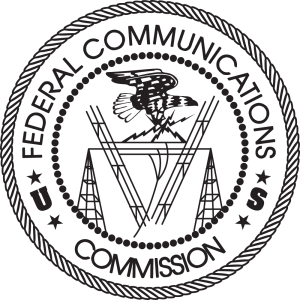 In January of this year, the Supreme Court ruled that the FCC Open Internet Order overstepped the authority of the FCC to dictate that internet service providers (ISPs) could not restrict certain internet traffic to their customers. After the ruling, the FCC announced that they would look into revising their net neutrality rules to make them comply with the Court’s ruling. Over the past couple of days, there has been a lot of speculation about what changes the FCC might make. There was enough outrage of the suspected proposal that the FCC decided to regarding its upcoming Open Internet Rules. So what exactly are their proposed changes and how can US consumers let them known what we want from the agency?
In January of this year, the Supreme Court ruled that the FCC Open Internet Order overstepped the authority of the FCC to dictate that internet service providers (ISPs) could not restrict certain internet traffic to their customers. After the ruling, the FCC announced that they would look into revising their net neutrality rules to make them comply with the Court’s ruling. Over the past couple of days, there has been a lot of speculation about what changes the FCC might make. There was enough outrage of the suspected proposal that the FCC decided to regarding its upcoming Open Internet Rules. So what exactly are their proposed changes and how can US consumers let them known what we want from the agency?
The FCC’s Proposal Clarification
In their statement, the FCC made it clear that they intend for three specific things in their proposal:
- That all ISPs must transparently disclose to their subscribers and users all relevant information as to the policies that govern their network;
- That no legal content may be blocked; and
- That ISPs may not act in a commercially unreasonable manner to harm the Internet, including favoring the traffic from an affiliated entity.
The first item is actually a very good proposal as it would allow subscribers to see the policies of their ISP. It would be even better if it stated that they must disclose what traffic they are blocking and for what reason. After all, policy is one thing but practice is another.
The second item sounds very good but it going to be very problematic. Take for instance torrent traffic. Sure, torrents are used for distribution of copyrighted materials. There is no doubt that this happens but much of the traffic on services like BitTorrent are legal. Does this mean that an ISP could block all traffic from that service because some of it is illegal? After all, I doubt the ISPs would be able to sniff the traffic within the torrent to only block those things they deem illegal.
The third item is where the big issue arises. In essence, they want to make sure that a company does not use traffic management as a means to get a commercial advantage. So an ISP could not throttle the traffic of a competitor in favor of its own services as that would be commercially unreasonable. The problem is that is still doesn’t seem to address the issue…
Pay For Privileged Traffic Confusion
Much of the confusion from before the statement by the FCC stemmed from the belief that the FCC was essentially saying that an ISP could not throttle specific traffic from a company, but that it could instead offer a private and privileged traffic path. This would assumed to be something similar to the agreement that was established between Comcast and Netflix recently.
The issue is what the definition of commercially unreasonable would be in the case of the traffic management. For instance, if Comcast just does not upgrade its general network backbone such that all traffic from the internet is throttled but they make special traffic peering agreements with large companies like Netflix, is that commercially unreasonable? Many would argue that it is because it is essentially using its influence to coerce companies to make these private peering agreements that involve lots of fees. It essentially discriminates against all network traffic unless you want to pay.
What Can You Do?
The Open Internet Rules are still under development by the FCC currently with expectation that they would be approved and released sometime before the end of the year. The FCC will be considering the propose rule changes at their May 15th meeting. They are currently with regards to the Open Internet Rules. So, if you would like to make your feelings known about the state of the internet and how you think they should deal with large ISPs that control much of our internet experience, send an email to .
